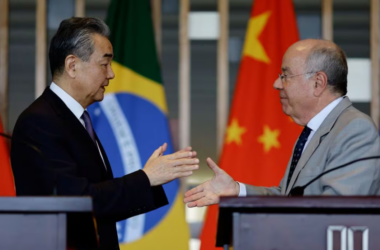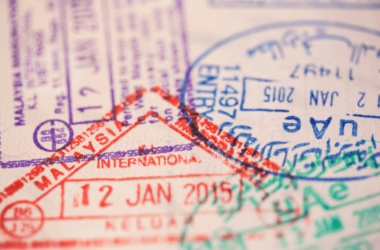The recent victory of Taiwan’s President-elect Lai Ching-te has introduced a delicate period in Sino-Taiwanese relations, prompting a measured response from China. This cautious approach reflects the intricacies of the geopolitical landscape, with Beijing carefully treading in the run-up to Lai’s official inauguration on May 20. As the U.S. presidential election looms in November, there is a heightened awareness of potential bipartisan pressure and foreign policy debates that could intensify the situation.
The victory of Lai Ching-te, a member of the ruling Democratic Progressive Party (DPP), in Taiwan’s recent elections has set the stage for a nuanced diplomatic dance between Taipei and Beijing. Lai is set to replace outgoing President Tsai Ing-wen in May, and China’s response to this political shift has been characterized by caution and restraint. The historical context of China’s claims over Taiwan adds complexity to the situation, with the possibility of increased pressure on the island nation.
Analysts anticipate a challenging four-year term for President-elect Lai, marked by Beijing’s concerns over his perceived separatist stance. The recent diplomatic shift by the Pacific island nation of Nauru, switching recognition from Taiwan to China, exemplifies China’s ongoing efforts to isolate Taiwan diplomatically. While Lai and his party brace for potential challenges, there is a sense that Beijing might not immediately escalate tensions, instead opting for a strategic waiting game.
Despite China’s strong claims over Taiwan as its own territory, there is an acknowledgment of the need for strategic restraint in the current circumstances. Chinese officials emphasize that while they will not initiate hostilities, they will not tolerate actions deemed threatening to peace and Chinese sovereignty. This delicate balance underscores Beijing’s approach of avoiding the first shot while ensuring a strong response to any perceived provocation.
The upcoming U.S. presidential election introduces an additional layer of complexity, with the potential for bipartisan pressure and foreign policy debates impacting the Sino-Taiwanese dynamic. China’s restrained response may indicate a desire to see how the United States navigates its relationship with Taiwan before making significant moves. The caution observed by China could be a strategic waiting period, allowing U.S. actions to influence the course of events.
China possesses various tools to exert pressure on Taiwan, ranging from economic measures and trade ties to potential military maneuvers. The scrapping of tariff cuts on certain chemical products and the possibility of further pressure on existing trade agreements highlight China’s economic coercive options. Militarily, China’s Central Military Commission is likely exploring escalatory options, and politically, Beijing may leverage connections with opposition figures within Taiwan.
While China’s initial response is cautious, there is an understanding that tensions could escalate if certain red lines are crossed. The delicate nature of the situation necessitates a nuanced approach, with the possibility of economic sanctions, cyberattacks, and political maneuvering in the coming months. Observers note that China’s response is contingent on Lai’s actions after assuming office and the broader geopolitical landscape.
The Sino-Taiwanese relationship stands at a critical juncture, with the recent election outcome in Taiwan prompting a strategic and cautious response from China. As President-elect Lai Ching-te prepares to take office, the next four years are poised to be marked by complex diplomatic dynamics, influenced by U.S. foreign policy decisions and Beijing’s strategic calculations. The delicate dance between China and Taiwan underscores the broader geopolitical challenges in East Asia, where any misstep could have far-reaching consequences.








